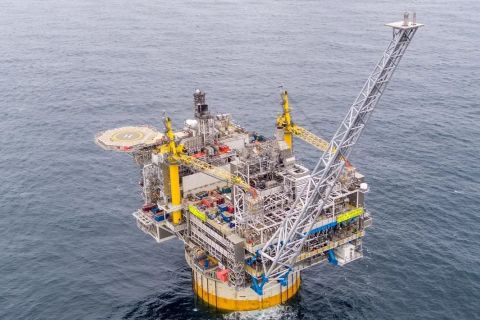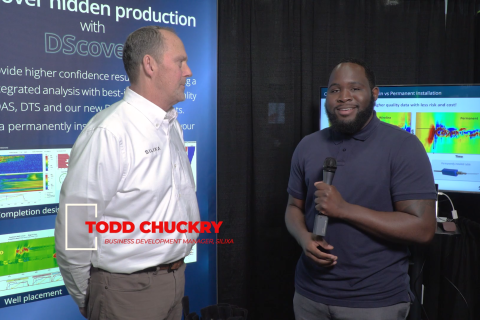Just a few years ago, who would have predicted that a midstream energy magazine would feature trucks and trains on the cover? Yet, such atypical modes of oil and gas transportation are appropriately representative of the slate of take-away methods in North Dakota and other oil and natural gas liquids plays such as the Eagle Ford. Companies are getting their production to market by any means possible.
And these are not just temporary fixes. Additional railway infrastructure is under construction in several of the plays. Some oil producers are building rail systems to serve their own production, while at least one independent, third-party system will serve all comers.
In fact, in at least one area, an opportunistic entrepreneur solved the problem of insufficient gas gathering infrastructure when he engineered the Bakken Express, a project to move natural gas by compressing it and transporting it by truck to a transmission pipeline. In another case, a circulating rumor held that one oil producer planned to get oil barrels to market via Bison-pulled carts, but we believe the rumor came from a freelance writer who hacked into the oil producer’s cell phone, so we wisely decided not to run the story.
In other editor-frustrating news, the battle rages on between Energy Transfer Equity LP and Williams Cos. to win the hand of fair Southern Union Co. The bid, offer, counter-offer, and continuous raises have yet to be called, and no one is bluffing. The war waged by both suitors necessitated no fewer than four rewrites of article, “Proxy Fight,” by Keefe Borden. The article was finally pulled from the intrepid editor’s hands, despites pitiful protests of “just one more paragraph,” as the next report of Energy Transfer’s increased bid hit the wires.
While the two latest midstream-merger contestants slug it out, a rash of major upstream companies are disintegrating, making this the summer of the splits. The big boys are determined to reap stock value by any means possible.
ConocoPhillips is the latest to announce a company-wide break between the upstream and downstream divisions, spinning spin off its refining and marketing arm into a new business. Following the split, its refining arm will be the largest U.S. independent refiner, with more capacity than Valero Energy Corp., according to data compiled by Bloomberg. ConocoPhillips’s announcement follows those by El Paso Corp., Williams Cos. and Marathon Oil Corp.
El Paso Corp. plans to separate into two publicly traded businesses by the end of the year. After the spinoff, El Paso Corp. will include its pipeline group, its midstream group and its general and limited partner interests in El Paso Pipeline Partners LP. Like El Paso, Williams Cos. Inc. will split into two stand-alone companies. The original 100-year-old Williams will include its midstream and pipeline infrastructure assets, while the spinoff will consolidate the exploration and production segment.
Meanwhile, Marathon Oil Corp. is breaking from its downstream business, thus creating two independent businesses. The first, Marathon Oil Corp., will focus on exploration and production. The second, Marathon Petroleum Corp., will focus on refining, marketing and pipeline transportation. In 2002, Marathon Oil itself was a product of a spin-off. Industry insiders remember the company as a subsidiary of U.S. Steel.
So what’s driving the chasm between exploration and refining? Crack Spreads. It’s the difference between the cost of crude oil and refined products. Currently, the spread is more than $35 a barrel, the widest in 25 years. As a result, investors and analysts believe that the two halves of these businesses are working against each other, regarding product pricing, so their stock values do not reflect what the companies were actually worth. The strategy to split them is expected to increase value for each side, making them worth more separately than as a combined business.
So far, it works. When Marathon Petroleum Corp. debuted on the New York
Stock Exchange, the stock rose 11%. Are other majors’ splits in the hopper? Time will tell. Watch this space.
Recommended Reading
Tech Trends: QYSEA’s Artificially Intelligent Underwater Additions
2024-02-13 - Using their AI underwater image filtering algorithm, the QYSEA AI Diver Tracking allows the FIFISH ROV to identify a diver's movements and conducts real-time automatic analysis.
Subsea Tieback Round-Up, 2026 and Beyond
2024-02-13 - The second in a two-part series, this report on subsea tiebacks looks at some of the projects around the world scheduled to come online in 2026 or later.
Exclusive: Silixa’s Distributed Fiber Optics Solutions for E&Ps
2024-03-19 - Todd Chuckry, business development manager for Silixa, highlights the company's DScover and Carina platforms to help oil and gas operators fully understand their fiber optics treatments from start to finish in this Hart Energy Exclusive.
CERAWeek: AI, Energy Industry Meet at Scary but Exciting Crossroads
2024-03-19 - From optimizing assets to enabling interoperability, digital technology works best through collaboration.
Cyber-informed Engineering Can Fortify OT Security
2024-03-12 - Ransomware is still a top threat in cybersecurity even as hacktivist attacks trend up, and the oil and gas sector must address both to maintain operational security.





